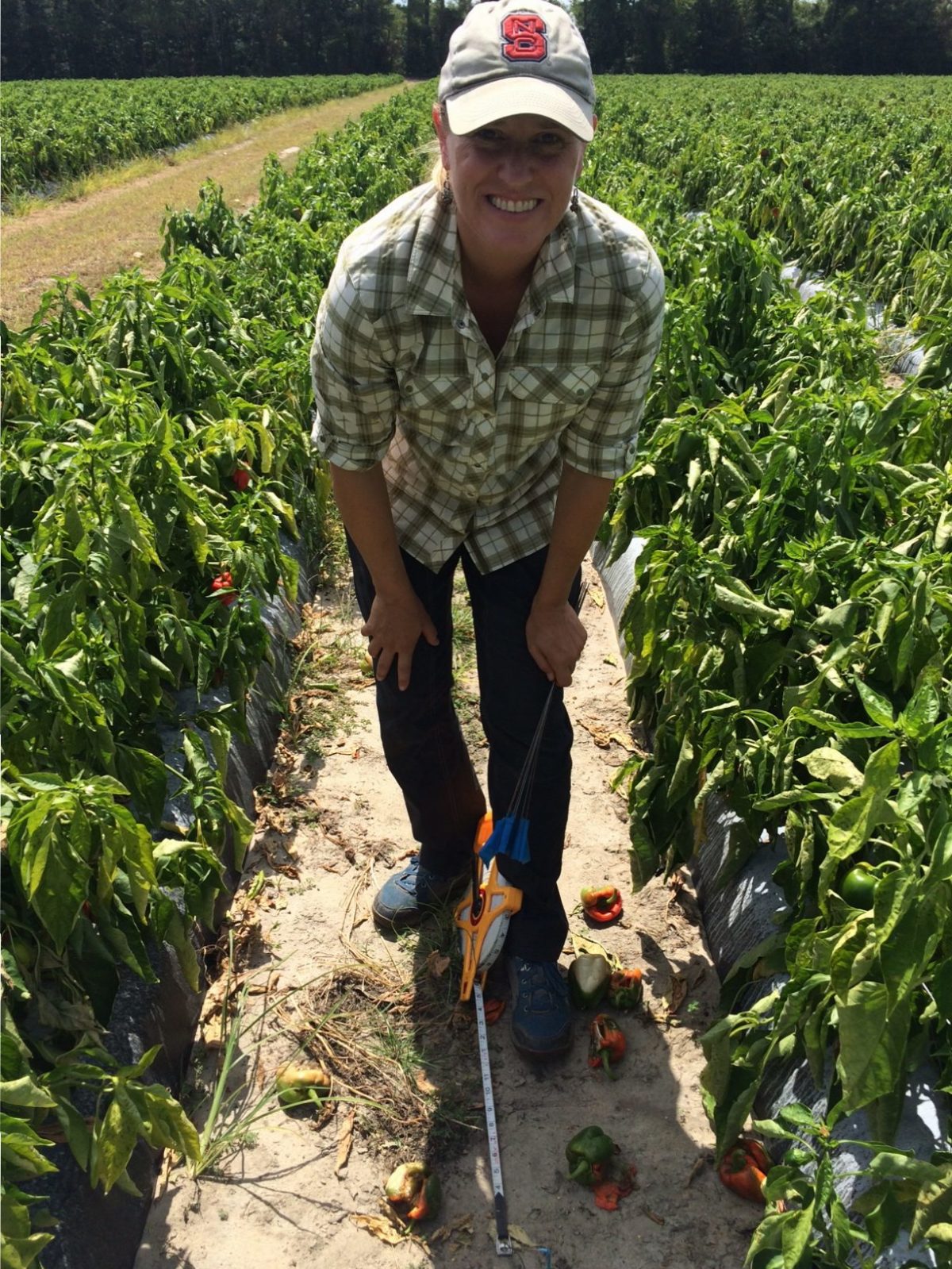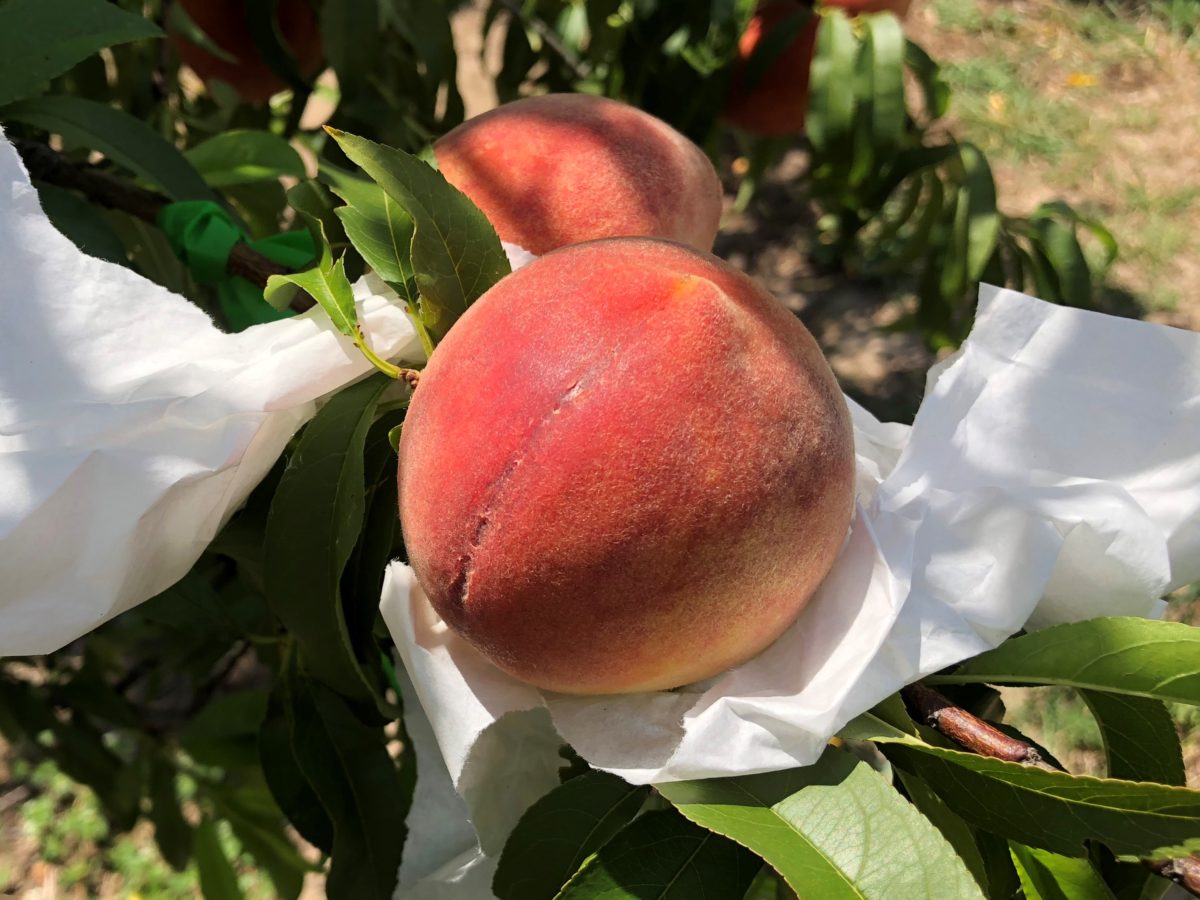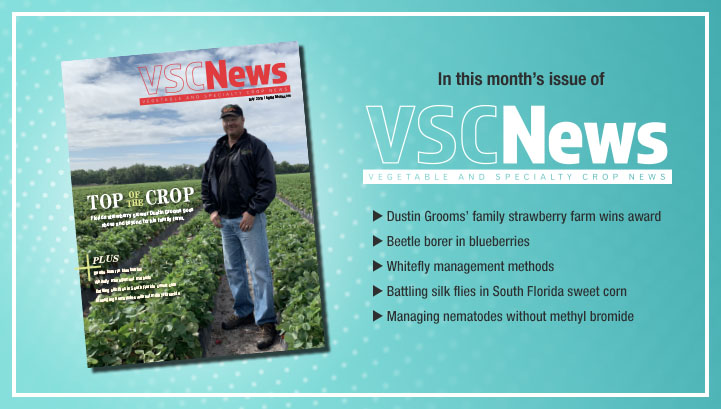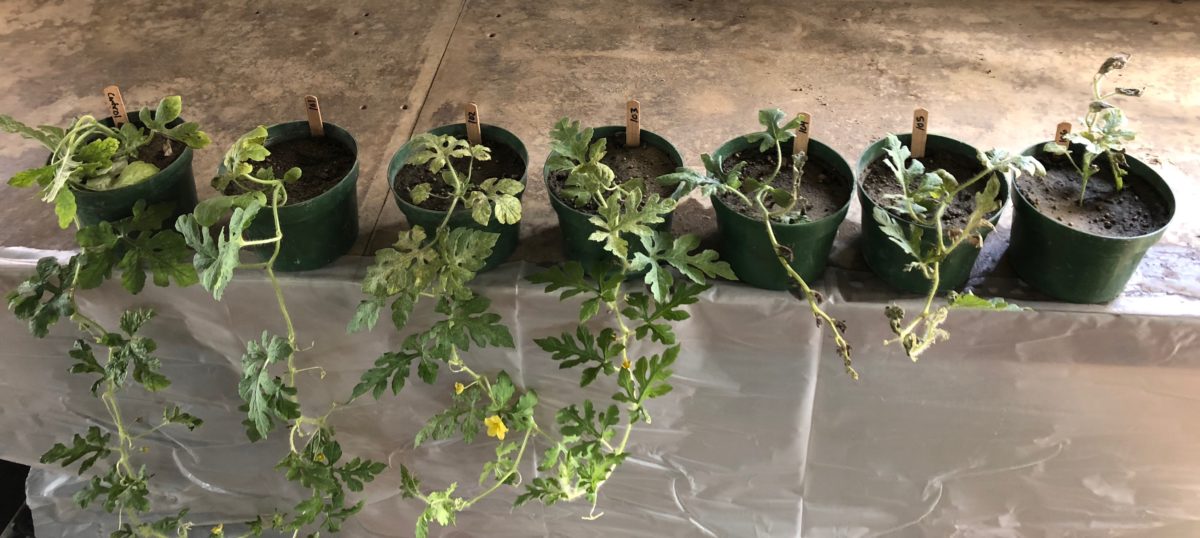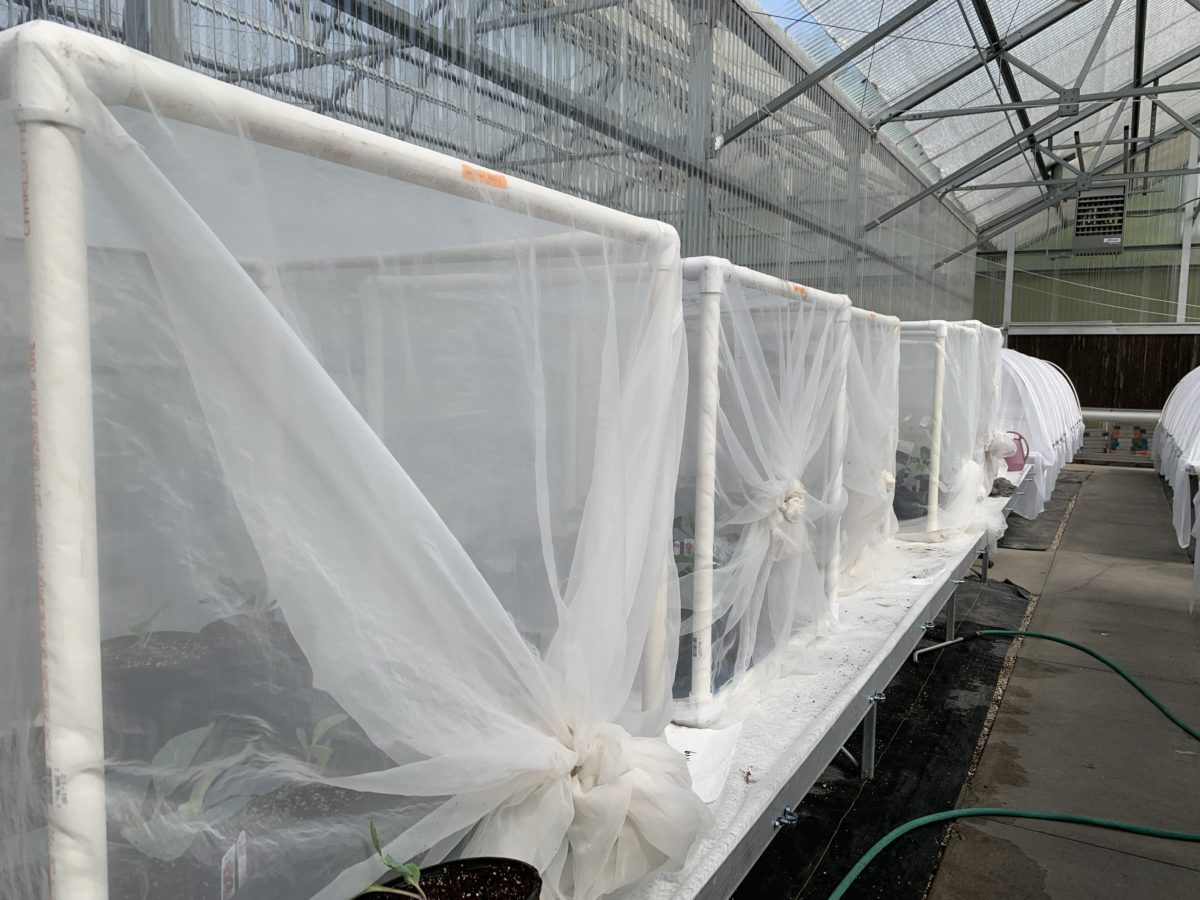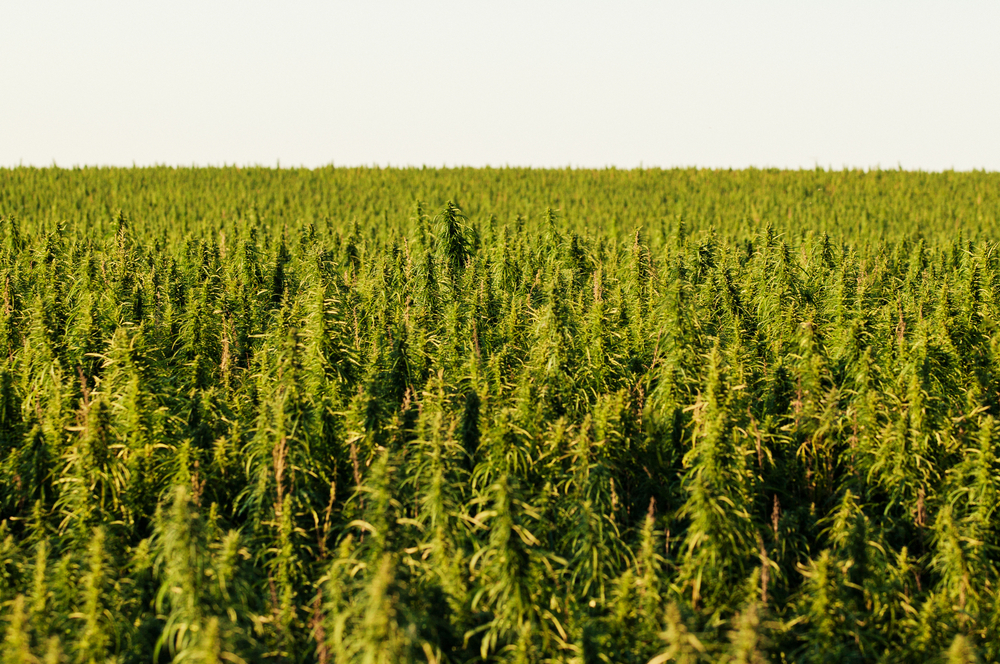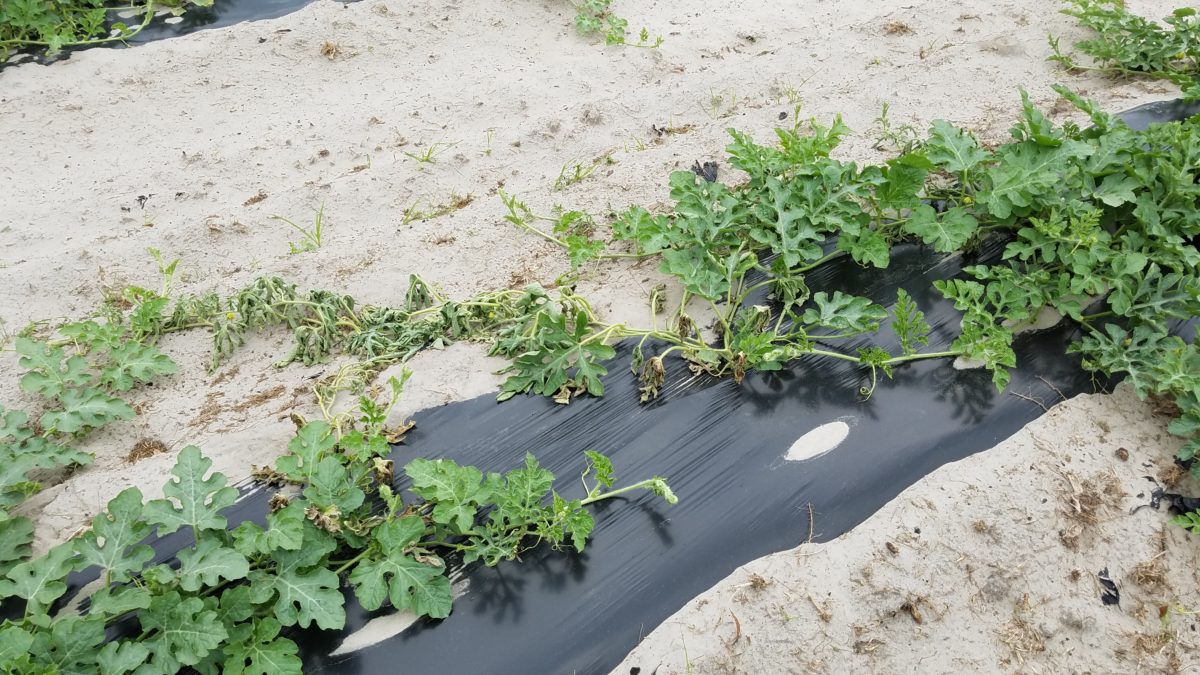By Lisa Johnson and Rebecca Dunning Nobody likes to be wasteful, but if it’s costlier to save something than to throw it away, a business owner is going to head for the garbage can. For fruit and vegetable growers, chemical destruction and tilling under are oft-used options near the tail end of a harvest. These practices occur even when product …
Bags Protect and Improve Peaches
By David Campbell and Danielle Treadwell Peach growers have rediscovered a tool to add to their integrated pest and disease management toolbox — a unique paper bag. Easy to install and remove, the bag has extra durability to withstand wind and rain throughout the season. And if our data is consistent with previous observations, bagging may be affordable for many …
Sneak Peek: VSCNews Magazine May 2019
Florida strawberry growers may recognize the man on the cover of the May issue of VSCNews magazine. Dustin Grooms of Fancy Farms in Plant City, Florida, is featured for being a recipient of the 4R Advocate Award. Learn more about his operation and what he did to win the honor in the magazine. Pest management is also discussed in this …
Preparing for the Florida Ag Expo
Planning for the 2019 Florida Ag Expo (FAE) is well underway. This week, the FAE seminar planning committee met to brainstorm ideas for the educational program. Attendees will have the opportunity to earn continuing education units and receive updates on the latest cutting-edge research from the University of Florida (UF). The AgNet Media team that manages FAE met with UF …
Nematode Density Impacts Damage
Root-knot nematodes are many crops’ worst enemy, including watermelon. Abolfazl Hajihassani, vegetable nematologist with the University of Georgia, recently completed a study analyzing how the population density of nematodes impacts watermelon damage. He presented the results of this trial at the Southeast Regional Fruit and Vegetable Conference in Savannah, Georgia, in January. STUDY SUMMARY Hajihassani began the trial by inoculating …
Potato Late Blight Detected in Tri-County Area
By Alison DeLoach Potato late blight genotype US 23 was recently identified in Saint Johns County, Florida. This strain of potato late blight is susceptible to fungicides with the active ingredient mefenoxam, found in the commonly used product Ridomil Gold SL. Nicholas Dufault, associate professor of plant pathology at the University of Florida, presented a disease update on potato blight …
Diamondback Moth Update
Diamondback moth (DBM) has been a menace for brassica growers around the globe for decades. After a major outbreak in 2016, the issue became much more prevalent in Florida and Georgia. So, researchers from the University of Florida (UF) and the University of Georgia (UGA) have recently been studying how resistant these pests have become to commonly used insecticides. Hugh …
The Impact of Nematodes on Hemp
By Alison DeLoach Interest is currently high in growing hemp as an alternative crop; however, nematodes may be an issue for growers. Johan Desaeger, assistant professor at the University of Florida (UF), is planning to conduct research on how susceptible hemp will be to nematodes in Florida. Hemp is being studied under a new pilot project at UF, like the …
Living with Fusarium Wilt
With multiple races that are increasingly aggressive, fusarium wilt has been a challenging disease for watermelon growers and a tough nut to crack for southeastern researchers. Nicholas Dufault, assistant professor and Extension specialist in the Plant Pathology Department at the University of Florida, says all races of fusarium wilt occur in Florida, but each is a little different. Fusarium wilt …
Methods for Measuring Fruit Firmness
By Alison DeLoach Measuring fruit firmness can tell a grower a lot about the maturity of a fruit. Patrick Abeli, a master’s student at Michigan State University in the Department of Horticulture, discussed the importance of measuring blueberry fruit firmness. When a fruit becomes too firm, it is unpalatable, and when a fruit is too soft, it spoils. According to …










